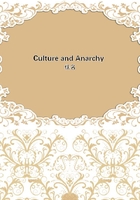
第48章
15 Science has now made visible to everybody the great and pregnant elements of difference which lie in race, and in how signal a manner they make the genius and history of an Indo-European people vary from those of a Semitic people. Hellenism is of Indo-European growth, Hebraism is of Semitic growth; and we English, a nation of Indo-European stock, seem to belong naturally to the movement of Hellenism. But nothing more strongly marks the essential unity of man, than the affinities we can perceive, in this point or that, between members of one family of peoples and members of another. And no affinity of this kind is more strongly marked than that likeness in the strength and prominence of the moral fibre, which, notwithstanding immense elements of difference, knits in some special sort the genius and history of us English, and our American descendants across the Atlantic, to the genius and history of the Hebrew people. Puritanism, which has been so great a power in the English nation, and in the strongest part of the English nation, was originally the reaction in the seventeenth century of the conscience and moral sense of our race, against the moral indifference and lax rule of conduct which in the sixteenth century came in with the Renascence. It was a reaction of Hebraism against Hellenism; and it powerfully manifested itself, as was natural, in a people with much of what we call a Hebraising turn, with a signal affinity for the bent which was the master-bent of Hebrew life. Eminently Indo-European by its humour, by the power it shows, through this gift, of imaginatively acknowledging the multiform aspects of the problem of life, and of thus getting itself unfixed from its own over-certainty, of smiling at its own over-tenacity, our race has yet (and a great part of its strength lies here), in matters of practical life and moral conduct, a strong share of the assuredness, the tenacity, the intensity of the Hebrews. This turn manifested itself in Puritanism, and has had a great part in shaping our history for the last two hundred years. Undoubtedly it checked and changed amongst us that movement of the Renascence which we see producing in the reign of Elizabeth such wonderful fruits. Undoubtedly it stopped the prominent rule and direct development of that order of ideas which we call by the name of Hellenism, and gave the first rank to a different order of ideas. Apparently, too, as we said of the former defeat of Hellenism, if Hellenism was defeated, this shows that Hellenism was imperfect, and that its ascendancy at that moment would not have been for the world's good.
16 Yet there is a very important difference between the defeat inflicted on Hellenism by Christianity eighteen hundred years ago, and the check given to the Renascence by Puritanism. The greatness of the difference is well measured by the difference in force, beauty, significance and usefulness, between primitive Christianity and Protestantism.
Eighteen hundred years ago it was altogether the hour of Hebraism. Primitive Christianity was legitimately and truly the ascendent force in the world at that time, and the way of mankind's progress lay through its full development.
Another hour in man's development began in the fifteenth century, and the main road of his progress then lay for a time through Hellenism. Puritanism was no longer the central current of the world's progress, it was a side stream crossing the central current and checking it. The cross and the check may have been necessary and salutary, but that does not do away with the essential difference between the main stream of man's advance and a cross or side stream. For more than two hundred years the main stream of man's advance has moved towards knowing himself and the world, seeing things as they are, spontaneity of consciousness; the main impulse of a great part, and that the strongest part, of our nation has been towards strictness of conscience. They have made the secondary the principal at the wrong moment, and the principal they have at the wrong moment treated as secondary.
This contravention of the natural order has produced, as such contravention always must produce, a certain confusion and false movement, of which we are now beginning to feel, in almost every direction, the inconvenience.
In all directions our habitual causes of action seem to be losing efficaciousness, credit, and control, both with others and even with ourselves. Everywhere we see the beginnings of confusion, and we want a clue to some sound order and authority. This we can only get by going back upon the actual instincts and forces which rule our life, seeing them as they really are, connecting them with other instincts and forces, and enlarging our whole view and rule of life. UTEL: Culture and Anarchy CHAPTER V.